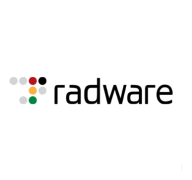


Sucuri and Radware DDoS are prominent players in the cybersecurity market, specializing in protection against distributed denial-of-service attacks. Radware holds the upper hand due to its advanced features, though Sucuri offers competitive pricing and strong support.
Features: Sucuri provides comprehensive website security, effective malware detection, and robust firewall protection. Radware stands out with its advanced threat detection, superior analytics, and focus on large-scale enterprise protection. The primary distinction is their target markets, with Sucuri serving small to medium businesses and Radware focusing on large enterprises.
Room for Improvement: Sucuri could enhance its real-time threat detection capabilities and analytics tools to better compete with larger enterprises. Its integration options may be somewhat limited compared to Radware. Sucuri's scope is narrower, catering to smaller organizations primarily. Radware could improve its ease of deployment to align with companies lacking extensive technical infrastructure. Its pricing model may not suit smaller businesses, and while tailored solutions are an asset, they may complicate straightforward implementations.
Ease of Deployment and Customer Service: Sucuri is noted for its straightforward setup, ideal for organizations with limited technical expertise. Its customer support is highly regarded, offering fast resolutions and comprehensive documentation. Radware's deployment is more complex, suitable for larger IT infrastructures, yet it provides responsive and tailored support services.
Pricing and ROI: Sucuri is cost-effective for smaller entities with lower setup costs, ensuring a good return on investment through effective breach prevention. Radware, though more expensive, offers substantial protection, justifying the investment for large companies needing top-level security. It caters to organizations prioritizing advanced security solutions despite the higher costs.
| Product | Market Share (%) |
|---|---|
| Cloudflare | 18.3% |
| Radware DDoS | 8.4% |
| Sucuri | 1.3% |
| Other | 72.0% |



| Company Size | Count |
|---|---|
| Small Business | 46 |
| Midsize Enterprise | 8 |
| Large Enterprise | 25 |
| Company Size | Count |
|---|---|
| Small Business | 18 |
| Midsize Enterprise | 10 |
| Large Enterprise | 18 |
Cloudflare is a highly-regarded Content Delivery Network (CDN) and a Distributed Denial-of-Service (DDoS) protection solution. The robust global connectivity cloud platform that is Cloudflare ensures users are able to connect to the Internet quickly, securely, and reliably. Cloudflare is one of the world's largest networks in the marketplace today. Using Cloudflare, businesses, educational entities, NGOs, vloggers, bloggers, and anyone else with an internet presence can experience more secure, faster websites and applications.
Currently, there are millions of Internet locations on Cloudflare, and the Cloudflare network
continues to grow every day by the thousands. The solution is able to fulfill the requests for
millions of websites seamlessly and serves on average 45 million HTTP requests per second.
Cloudflare has safe, secure data centers in close to 300 cities worldwide to ensure every
client request is filled as quickly as possible. It is Cloudflare’s edge network that makes this
possible by keeping content and other services as close to each client as possible, so the
information requests are always only seconds away.
Many organizations that work in democracy, civil society, human rights, or the arts are able to
access Cloudflare's highest levels of protection for free via Project Galileo. Additionally, official
election websites can be secured from hacking and fraud through Cloudflare’s Project
Athenian, also at no additional cost.
Cloudflare can also help organizations of all sizes develop a robust zero-trust strategy to
ensure the highest levels of productivity and profitability. Employees, stakeholders, and end users have a greater level of satisfaction and overall improved user experience, which can, in
turn, result in higher revenues and overall ROI. Zero-trust and BYOD (bring your own device)
access ensure end users and employees always have the best resources and technology
available to them at all times.
Cloudflare benefits
Cloudflare has many benefits. Some of its most valuable benefits include:
- Faster load times
- Robust DNS security
- Intuitive cloud Web Application Firewall (WAF)
- Free universal SSL
- Image enhancement
- Automatic browser caching
- Next-generation cloud load balancer
- Accelerated Mobile Pages (AMP)
- Rate limiting
- Minification
- Zero-trust capabilities
- Cost-effective
- Reduced carbon footprint
Reviews from real users
“Many websites require an SSL certificate because they sell stuff and want SSL. Cloudflare
comes with an SSL certificate built in. It's automatic. You sign yourself up for Cloudflare, and
an SSL certificate automatically protects your website. If you have a connection between your
website and your host, the server, Cloudflare, and the host, you don't necessarily need a
certificate.” Spencer M., Owner at Tech Exchange
“What I like best about Cloudflare is that my company can use it to trace and manage
applications and monitor traffic. The solution tells you if there's a spike in traffic. Cloudflare
also sends you a link to check your equipment and deployment and track it through peering,
so it's a valuable tool.” Daniel P., Network Engineer at Ufinet
“The most valuable feature of Cloudflare is the GUI. You are able to control the solution very
well through the interface. There is a lot of functionality that is embedded in the service.” PeerSpot user, Competence Center Manager at a tech services company
Radware DDoS provides robust multi-layer protection against distributed denial of service attacks, featuring real-time monitoring and anomaly detection. Its scalable cloud-based and on-site deployment options ensure effective safeguarding of critical infrastructure.
Offering comprehensive defense, Radware DDoS includes features like data scrubbing, signature updates, and SSL-based mitigation. Integrated platforms and a user-friendly interface streamline its deployment. With advanced reporting, analytics, and behavioral analysis powered by machine learning, users experience fewer false positives. Despite these strengths, users highlight the need for improved scalability, seamless deployment, and enhanced machine learning capabilities. Better documentation, pricing, and customer service remain areas of improvement.
What features does Radware DDoS offer?In industries like banking, telecom, and government, organizations employ Radware DDoS to protect networks from DDoS attacks. It ensures server, web service, and mail security while enabling traffic monitoring and unauthorized access blocking. Its cloud-based options serve entities seeking infrastructure security and network traffic analysis.
We monitor all Distributed Denial-of-Service (DDoS) Protection reviews to prevent fraudulent reviews and keep review quality high. We do not post reviews by company employees or direct competitors. We validate each review for authenticity via cross-reference with LinkedIn, and personal follow-up with the reviewer when necessary.